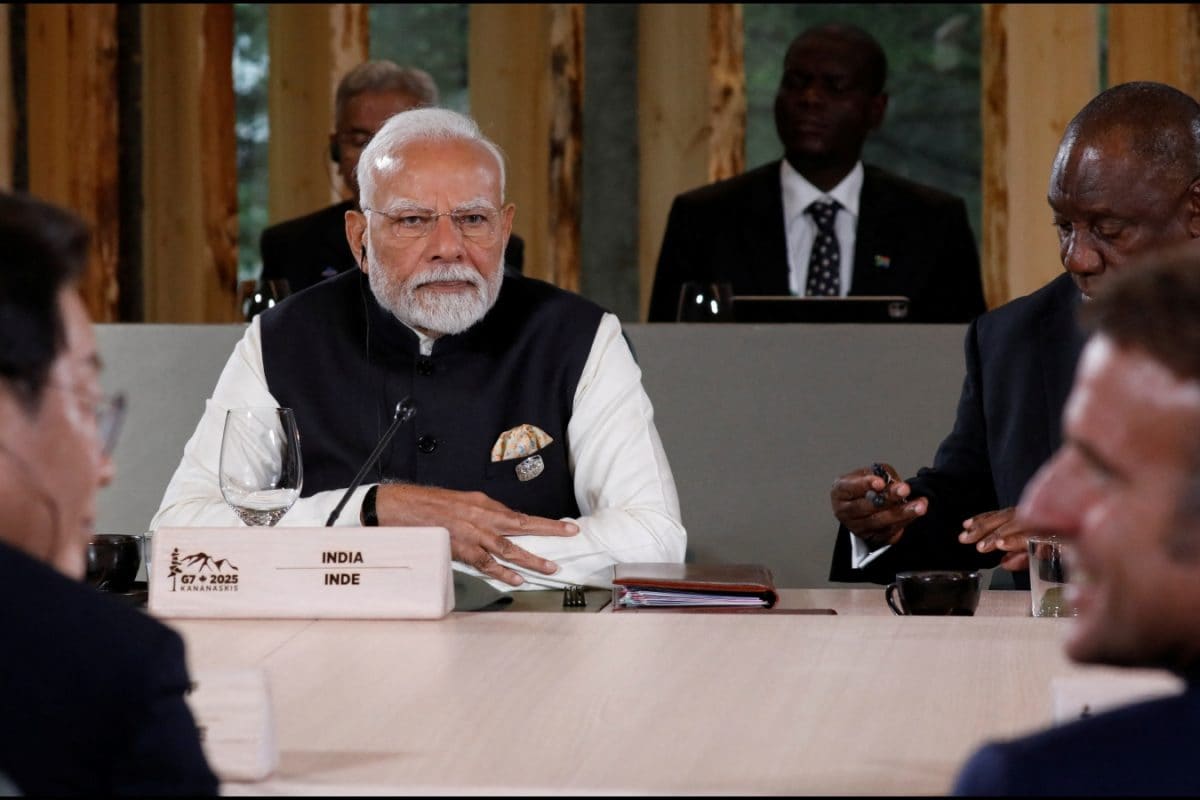

At the G7 Summit in Kananaskis, Canada, Prime Minister Narendra Modi delivered a forceful message against terrorism, emphasizing the urgent need for the global community to unite against the menace and eliminate any double standards in dealing with it. Modi's remarks come at a crucial time, with escalating global tensions and recent terror attacks underscoring the persistent threat posed by terrorism.
Reaffirming India's unwavering stance against terrorism, Modi urged G7 leaders to galvanize global action and ensure that those who promote and support terrorism face strict consequences. He conveyed his gratitude to the leaders for condemning the recent terror attack in Pahalgam, Jammu and Kashmir, where 26 people were killed. In response to the attack, India launched Operation Sindoor, targeting terror infrastructure in Pakistan and Pakistan-occupied Kashmir.
Modi's address highlighted the critical need for a clear and unified global policy on terrorism. He pointed out the inconsistency of imposing sanctions based on preferences while seemingly rewarding countries that openly support terrorism. "For global peace and prosperity, our thought and policy must be clear – if any country supports terrorism, it will have to pay the price for it," Modi asserted, without explicitly naming Pakistan.
India's commitment to combating terrorism is evident in its recent actions and diplomatic efforts. Following the Pahalgam attack and Operation Sindoor, India dispatched seven delegations comprising 59 leaders from various political parties to 32 countries. This initiative, named "One Mission, One Message, One Bharat," aimed to convey India's zero-tolerance policy towards terrorism and to advocate for holding Pakistan accountable for supporting terror groups.
Modi's strong stance against terrorism at the G7 Summit reflects India's broader strategic shift towards a more assertive approach to national security. In the aftermath of the April-May crisis, India has signaled a "new normal" in its policy towards Pakistan, characterized by coercive diplomatic, economic, and military measures. This includes a commitment to retaliate decisively against any further terror attacks, ending engagement with Pakistan until violence ceases, and focusing future talks solely on terrorism and territorial claims.
Beyond counter-terrorism efforts, Modi also addressed the importance of energy security and sustainable development at the G7 Outreach Session. He highlighted India's initiatives such as the International Solar Alliance (ISA), the Coalition for Disaster Resilient Infrastructure (CDRI), and the Global Biofuels Alliance, emphasizing the need for a sustainable and green pathway to ensure energy access for all. He also spoke about India's experience in democratizing technology and its human-centric approach to deploying it.
The G7 Summit in Kananaskis also provided an opportunity for Modi to hold bilateral meetings with several world leaders, including Canadian Prime Minister Mark Carney, South Korean President Lee Jae-myung, French President Emmanuel Macron, British Prime Minister Keir Starmer, Italian Prime Minister Giorgia Meloni, and Australian Prime Minister Anthony Albanese. Discussions focused on strengthening trade ties, boosting cooperation in economic matters, and addressing global challenges. India and Canada agreed to designate new high commissioners, signaling a move towards normalizing consular and trade services after a period of diplomatic strain. Modi also thanked Mexico's President Claudia Sheinbaum Pardo for her country's support in India's fight against terrorism.
As India continues to play an increasingly prominent role on the global stage, its firm stance against terrorism and its commitment to multilateral cooperation will be crucial in shaping international efforts to address this critical challenge. The Prime Minister's strong message at the G7 serves as a reminder that there can be "no place for double standards on terrorism" and that a united front is essential to ensuring global peace and security.